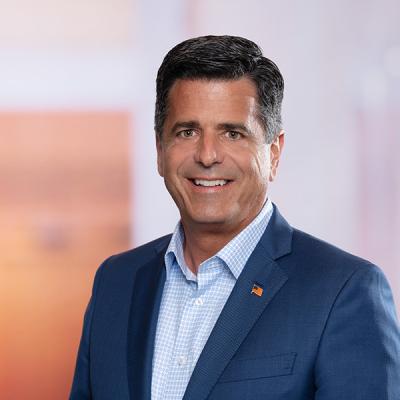Fall Legislative Sessions Commence; Attorney General Certifies Ballot Questions
Massachusetts lawmakers have returned from summer recess and are preparing to tackle a robust legislative agenda this fall. Legislators will meet formally through the third Wednesday in November, at which point formal sessions will end until 2018. Below is ML Strategies’ forecast and analysis of the issues that lawmakers on Beacon Hill will likely address this fall.
Legislative Agenda
Health Care
At the top of the legislative agenda is tackling rising Masshealth costs after lawmakers and Governor Charlie Baker were unable to agree upon a comprehensive reform package over the summer. After rejecting last month Masshealth eligibility reforms that Governor Baker had proposed earlier in the summer, lawmakers promised to continue debating health care cost containment and offer their own plans. During August the Senate held three roundtable discussions, and a health care working group plans on filing legislation in late September or early October.
Budget
Lawmakers will continue to closely monitor state revenue collections, especially in light of the Department of Revenue’s recent report that total revenues collected for July and August were slightly below collections levels from the same period last year. The Department reported collecting $1.712 billion in taxes in August, which was $16 million or 0.9 percent below the monthly benchmark. The state’s uncertain revenue outlook contributed to the downgrade of the state’s bond rating in June.
The state’s revenue picture will impact how much of Governor Baker’s FY18 budget vetoes the legislature will override. In July, Baker vetoed $320 million from the $40.2 billion FY18 spending plan and this week the House is restoring some of this spending. The House is aiming to restore $275 million in spending, the bulk of which – $220 million – is for Masshealth caseload costs. The Senate must agree to these overrides for the spending to be restored.
Criminal Justice
Lawmakers and advocates will continue their push for comprehensive criminal justice reform throughout the fall. Proponents of reforming the state’s criminal justice system have suggested a wide range of measures, including eliminating mandatory minimum sentences, revamping the bail system, and raising the age of those sent to juvenile court from 18 to 21. House Speaker Robert DeLeo said that he wants to see a criminal justice reform package pass the Senate and House by the end of this year. DeLeo has also expressed a desire to pursue two criminal justice bills, with one bill focusing on lowering recidivism and another broader bill focused on other criminal justice issues. The recidivism bill would be based upon the findings that emerged from a partnership with the Council of State Government’s Justice Reinvestment Initiative (HB74, An Act Implementing the Joint Recommendations of the Massachusetts Criminal Justice Review).
Employment
While the legislature continues to weigh wage theft legislation (SB999/HB1033), which the Joint Committee on Labor and Workforce Development heard testimony on in June, the Fair Labor Division of the Office of Attorney General Maura Healey released its second annual report on wage theft and labor law enforcement in Massachusetts. The report said that Massachusetts employers paid $6 million in required restitution and nearly $3 million in penalties for wage and labor violations in the last fiscal year. The construction and restaurant industries were found to have had the highest percentages of violations cited.
The Labor and Workforce Development Committee is also planning on holding a hearing on non-compete legislation (SB1020), An Act to protect trade secrets and eliminate non-compete agreements) on October 3.
Energy
Clean energy proponents will continue their push for legislation that would increase the state’s usage of renewable energy and lower greenhouse gas emissions. On September 19 the Joint Committee on Telecommunications, Utilities, and Energy will hold a hearing to receive testimony on several bills increasing Massachusetts’s renewable energy portfolio standard. Additionally, it is expected that hearings will be held this fall on solar legislation that has been filed this session.
Attorney General Certifies Initiative Petitions
These legislative debates will take place while advocates attempt to circumvent the legislative process and pressure lawmakers to enact their priorities through the ballot. On September 6, Attorney General Maura Healey certified twenty-one initiative petitions to appear on the 2018 ballot. Healey’s office reviewed twenty-eight petitions in total, rejecting seven of them. The certified petitions include twenty proposed laws and one constitutional amendment (related to abortion, as described below).
The Attorney General certified the following petitions to appear on the ballot:
- Minimum Wage: Raises the state’s minimum wage, which was $11.00 per hour as of January 1, 2017, to $12.00 in 2019; $13.00 in 2020; $14.00 in 2021; and $15.00 in 2022. It would also raise the minimum cash wage that must be paid to tipped employees, which was $3.75 per hour as of January 1, 2017, to $5.05 in 2019; $6.35 in 2020; $7.64 in 2021; and $9.00 in 2022.
- Paid Family and Medical Leave: Creates a program to provide paid family and medical leave to Massachusetts workers.
- Sales Tax: Initiative petitions were certified that reduce the state sales and use taxes from their current rate of 6.25% (as of September, 2017) to 4.5% or 5%.
- Abortion: A proposed constitutional amendment that would permit the state to exclude abortion services from state-funded health care.
- Fee Disclosure for Radiology and Other Imaging Procedures: Requires medical providers to inform patients of the costs of all radiology and imaging procedures priced over $100, including fees for use of equipment, room, supplies, personnel, and other ancillary costs.
- Campaign Finance and Corporate Rights: Creates a citizens commission to consider and recommend potential amendments to the United States Constitution to establish that corporations do not have the same constitutional rights as human beings and that campaign contributions and expenditures may be regulated.
- Euthanasia in Homeless Animals: Requires an animal shelter or rescue to hold lost, abandoned, stray, or surrendered animals and animals removed from the home for at least seven days before euthanizing, unless the animal is seriously or terminally ill.
- Aversive Therapy: Prohibits the use of any procedure that causes physical pain to a person with a physical, intellectual, or developmental disability for the purpose of changing that person’s behavior.
- Nurses: Limits how many patients could be assigned to each registered nurse in Massachusetts hospitals and certain other health care facilities.
- Tax Returns and Presidential Elections: Requires candidates for President and Vice President of the United States to submit to the Secretary of the Commonwealth complete copies of the candidate’s individual federal income tax returns filed in the prior six years.
- Political Spending: Imposes limits on how much state, county, or local political candidates or ballot question committees could accept in monetary contributions from political action committees organized outside Massachusetts or from individuals residing outside Massachusetts.
- Whale Safe Fishing Act: Prohibits the Director of the state Division of Marine Fisheries from authorizing or licensing the commercial use of fishing gear known to entangle whales or sea turtles.
- Renewable Energy: Amends programs to govern and promote the use of electricity generated from renewable energy resources. Several petitions were certified that raise the annual percentage increase of renewable energy use in Massachusetts, authorize the Department of Energy Resources to provide incentives and grants to increase solar power use, and change the state’s net metering program.
Rejected petitions included proposals to end tolling in Massachusetts, require insurance coverage for holistic health care, declare that corporations are not people and that the legislature can limit political spending and contributions, ensure no foreign influence on the political process, and a second proposal to raise the minimum wage.
Looking Forward
After the conclusion of this year’s formal sessions in November, informal sessions will take place for the remainder of the year until legislators reconvene in January for the continuation of the 2017-2018 legislative session. Shortly after the start of the new year, Governor Baker will submit his FY19 budget recommendations, and planning for this budget release will occur throughout the fall.
As for the initiative petitions, proponents of certified petitions will now be required to gather 64,750 signatures from registered voters by December 6. Proposals that gather a sufficient number of signatures will then be sent to the legislature, and if the measure is not enacted by the first Wednesday in May, petitioners can collect 10,792 more signatures by early June to place the question on the ballot on Election Day.
ML Strategies will continue to monitor and periodically report on legislative developments this fall and on the status of the initiative petitions.
* * *
If you have any questions about these matters
please contact your ML Strategies government relations professional.
Content Publishers

Brian Dempsey

Julie Cox
Steven A. Baddour
Executive Vice President & Director of Operations
Daniel J. Connelly
Senior Vice President and Compliance Officer

Caitlin Beresin



